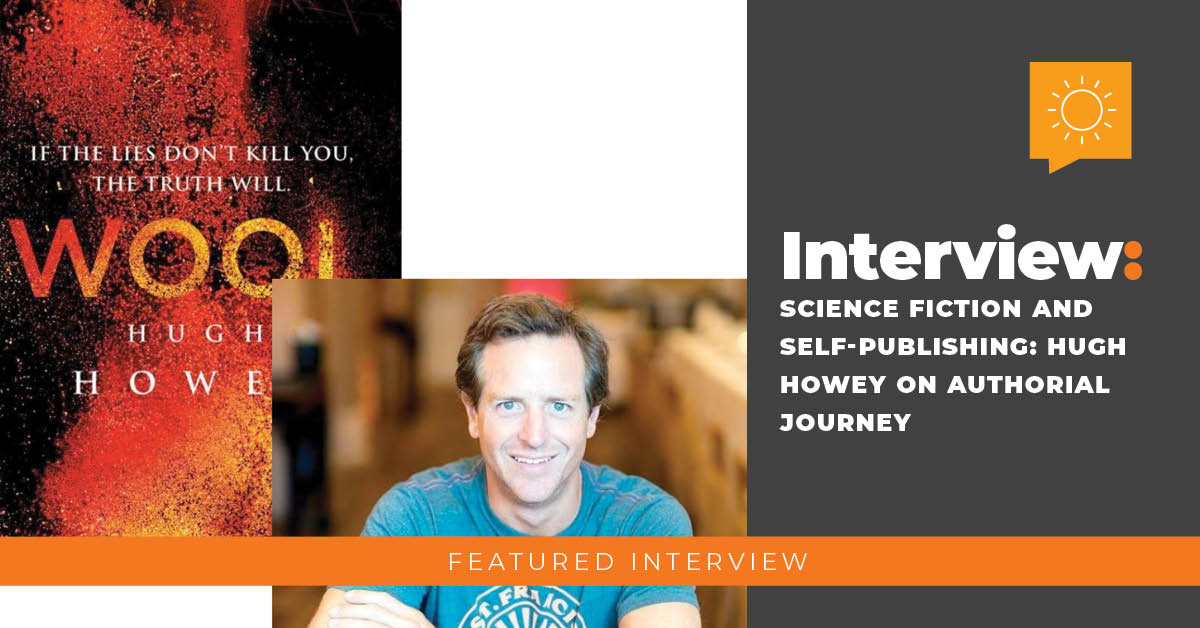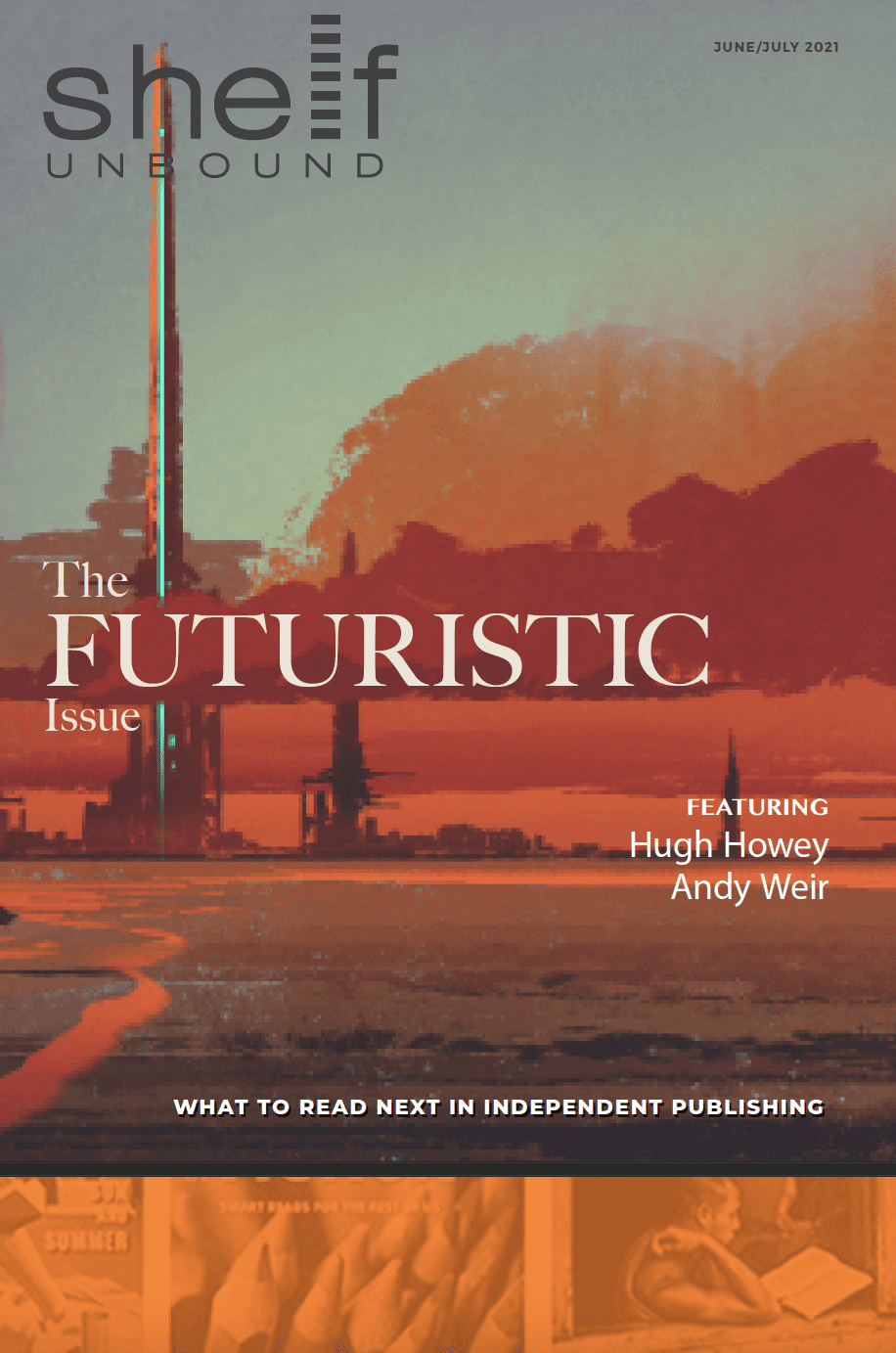BY ALYSE MGRDICHIAN


Sci-fi, the theme of this issue, is both a difficult and rewarding genre. In particular, while world-building can be rigorous and the line between originality and tradition can become difficult to straddle, sci-fi is a genre full of adventure, wonder, and plausibility. In light of this, I was very excited to have the opportunity to speak to Hugh Howey, a veteran writer who has authored more than a dozen sci-fi novels.

Right off the bat, I find myself curious about Hugh’s experience writing his most popular series, The Silo Saga. “It’s the world I’m proudest of creating,” he tells me. “The worldwide impact of the series has been humbling, and just knowing that millions of people have lived in this world with me is what makes it my favorite.” The series itself is about the remnants of humanity living in an underground silo after the rest of the world has been destroyed. The silo’s new sheriff gets curious, though, and starts trying to dig up information about how humanity got trapped underground and what actually happened in the outside world—and things just go from bad to worse from there.

“The publication of the Silo Saga was really wild,” Hugh laughs. “It started as a short story, just 20,000 or so words. I threw it on Amazon for $0.99 and went back to writing novels, never thinking it would go anywhere. Within a month, it was outselling all my other works. In another month, it was selling 10,000+ copies and racing up the bestseller charts. I serialized the rest of the story in five parts, and the combined book, Wool, hit the New York Times bestseller list as a self-published book. This was back in 2010, before successful self-published books became more common, so I not only had readers demanding to know what was going to happen next in the series, I also had media and other writers wanting to know how I’d pulled it all off. I tell everyone that I just got lucky, but for some reason that answer rarely ever gets taken seriously.”
It’s incredible to think that, in 2010, a self-published book received as much attention as Wool did. With self-publishing, you bear the responsibility of marketing your own book, and so the fact that Wool seemed to take off all on its own is prodigious. Hugh didn’t begin his writing career as a self-publisher, though.
Hugh’s very first book, Molly Fyde and the Parsona Rescue, was printed by a small publishing house. It was a tiny operation, but they paid Hugh an advance and covered all the costs of publishing, and he got to work closely with an editor who helped him fine-tune the book. These things were all great—however, as Hugh puts it, “I quickly learned that I was the one driving most of the sales, so I figured that I should be the one keeping the larger cut of the proceeds. I also wanted more control over the cover art, how the book was laid out, and how quickly I could publish my works, so I found that self-publishing was a much better fit for me.”
“It has been great,” Hugh continues, “but I went into self-publishing with very low expectations, so it would’ve been difficult for me to be disappointed. You can’t really let yourself care about how much you’re making when self-publishing. All I really wanted was to write and finish a novel, and for it not to suck. I’ve accomplished that, so everything else I’ve done after that has just been a bonus.” Since the success of his self-published books, Hugh went on to be published by major houses like Random House, Simon & Schuster, and Houghton Mifflin Harcourt. “When money isn’t your primary concern,” he tells me, “then you can do all sorts of interesting deals for other advantages elsewhere.”

Circling back to his first book, Molly Fyde and the Parsona Rescue, I find myself curious about how Hugh has seen his writing tactics and skills change over the years. “I’ve probably gotten more skilled as a writer since that book,” he says, “but I’ve definitely gotten a lot slower. I’d rather have the speed back, to be honest. I wrote that first book in a week, and the hours and days simply flew by in a blur of productivity. Now I mew and complain as I look for the best words possible, feeling the weight of a million pairs of eyes over my shoulder, watching and waiting.”
And his advice for people who want to try writing sci-fi? “Start by reading a lot of it,” Hugh tells me, “and get used to the possibilities. Read the good stuff, but remember that the best sci-fi is about the people in the stories, not the grand ideas or gizmos. You have to have engaging characters overcoming real obstacles. The characters are actually what makes writing sequels so addictive, because the people are already fully fleshed and are just waiting to have more adventures. It can be quite lucrative as well, because readers tend to prefer returning to a place they love rather than having to get to know a new one. However, it’s difficult to return to a world you’ve already explored and try to make it as interesting as it was the first time. It’s easy to recycle the same plot points and characters and gimmicks—the real magic is in moving beyond the tired and trying something new. In nearly all aspects of writing, I’ve found that it’s best to branch out and keep trying new things.”
Hugh has taken his own advice to heart, writing everything from horror and romance to children’s books and literary short stories. Of all the genres, though, Hugh seems to keep wandering back to sci-fi. Curious, I ask him, what is it about the genre that draws him to it? “Science fiction is compelling,” Hugh says, “because it allows us to delve into what it means to be human. In sci-fi, we are able to change one aspect of our lives, and then see what the consequences would be. There is no greater genre for social commentary, which is why when we lament the human condition or talk about the failings of society, we refer to works like Frankenstein, 1984, Brave New World, or Fahrenheit 451.”
When writing sci-fi, you have an opportunity to expose the uglier aspects of humanity, especially when operating within a futuristic setting, because you’re able to say, “This is what would happen if attribute ‘x’ of humanity were exacerbated.” So, while the murderous robots and intergalactic adventures are lots of fun, there is often a deeper truth to sci-fi. That sounds like an oxymoron, but it isn’t. Any story that deals with people will have some degree of truth to it, and, as Hugh previously mentioned, sci-fi is the best genre for social commentary because it allows us to explore what humanity is currently capable of and what it could become.
Needless to say, I’m grateful for having had the opportunity to speak with Hugh. His journey in writing and publishing has been both wild and admirable in equal measure, and I take solace in knowing that his journey is far from over.

About the Author:
Hugh Howey is a full-time writer, sailing around the world while penning New York Times bestsellers. There is lots you can look forward to from Hugh in the future, with two TV shows that are about to go into production, a coffee line coming out, a new children’s book, a sequel to Sand, an autobiography of his sailing adventures that lands this summer, and a new YA urban fantasy, his first in the genre.
You can keep up with Hugh on Instagram and Twitter, and you can learn more about him and his projects on his author website, www.hughhowey.com.

